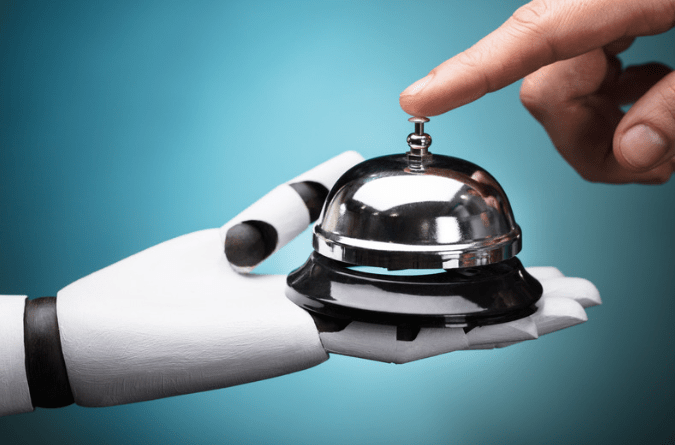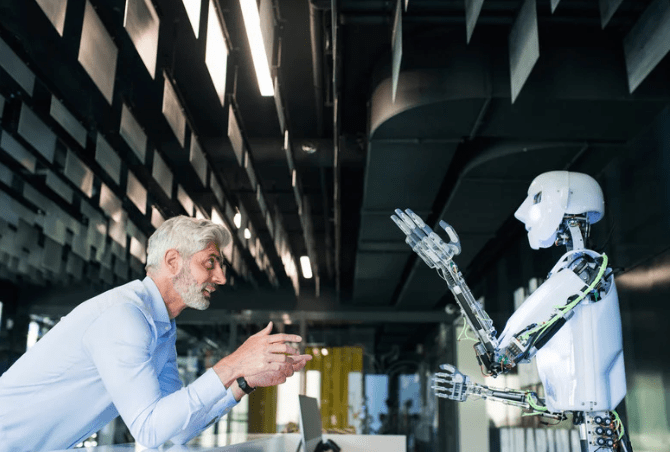
Technology for hotels is becoming increasingly important as guest expectations for personalized, seamless experiences rise. The need for operational efficiency and the competitive edge provided by innovative solutions are crucial for adapting to changing market dynamics and boosting overall profitability.
In this context, innovation is always on the horizon, with various technological applications emerging, such as new service robots. In the hospitality sector, the primary goal of these robots is to enhance and expedite the overall guest experience, which can be achieved in several ways.
Hotels must leverage available resources and systems to retain loyal clients, and technology plays a significant role, setting the stage for growth in the coming years.

From a financial perspective, hospitality technology is becoming more affordable to implement. This means that even smaller properties, like boutique hotels, can take advantage of its benefits. It’s important to note that guest expectations are evolving and becoming more demanding. With wireless connectivity and the ubiquitous presence of smartphones, guests now expect unparalleled service levels during their stay.
This increasingly involves the integration of technology. Hotel robots can provide such a competitive edge, making it logical for managers to capitalize on these opportunities. Additionally, virtual reality and smart technologies drive innovation and tech advancements in the industry.
According to the Virtual Reality Market Report by Fact, virtual reality (VR) creates a digital environment for users to explore. MR, the global market size of VR is projected to reach $233.79 billion by 2033. This technology is particularly beneficial for hotel management, allowing potential guests to explore a hotel from their homes virtually.
VR offers the ultimate way to experience a hotel before booking. Many hotel websites incorporate VR tours and 360-degree videos to boost sales.
Most virtual reality tours can be accessed via a standard web browser on a computer, mobile device, or tablet, making them a widely accessible technology for hotels. However, a dedicated VR headset enhances the experience.
“Smart” technology has become an integral part of our daily lives, and its impact is increasingly felt in the hospitality sector. Features like automated checkout services, personalized room settings, Internet of Things (IoT) integration, and wireless connectivity are becoming standard.
Smart mirrors are also enhancing guest experiences by providing real-time information and personalized content, further elevating the level of customization available. The ultimate goal is to offer guests a fully tailored experience, reinforcing the hotel’s brand identity and encouraging repeat visits.
Robots are among the most fascinating trends in hotel technology, and their capabilities are rapidly advancing. Some hotels already use robots to greet guests and provide 24/7 tourist information, but their applications are expanding far beyond these tasks.
Hotel robots can assist with housekeeping activities, such as vacuuming floors and sanitizing surfaces, which is crucial for maintaining a COVID-19 secure environment. Additionally, robots are being utilized for luggage transportation, security, room service, and restaurant waiting.
Robots will continue to evolve as a technology for hotels, becoming more reliable and efficient through advancements in artificial intelligence and machine learning.
Often referred to as “guest ambassadors,” these robots are strategically placed within a property to answer common questions. They can provide information on elevator locations, directions to specific rooms, or even recommend certain types of food. Their humanoid appearance adds a welcoming charm to the establishment, especially useful when staff may not be immediately available during busy periods. This is a prime example of how technology for hotels is enhancing guest interactions.
Cleaning is a major concern in any property, and hotel robots have been designed to perform various services. One type of robot is specifically designed to clean and disinfect areas exposed to germs or bacteria, which is crucial in the wake of the COVID-19 pandemic. Hotels using such precise devices are likely to enjoy higher retention rates.
Another type of robot focuses on general services, like delivering clean laundry to the appropriate floors. This reduces manual labor and ensures guests receive fresh towels and linens promptly, enhancing overall satisfaction. Floor-cleaning robots are also popular, entering rooms after guests depart to ensure a clean environment for new arrivals. While this concept has long existed in the domestic sector, hotels are now recognizing its benefits.
Similarly, some robots are designed to offer tailored room service options. These small wonders are stocked with food from the hotel kitchen and delivered to specific rooms. This ensures all meals are served fresh, and guests can enjoy a delicious selection of foods without leaving their rooms. As part of technology for hotels, these robots enhance guest experiences by providing efficient and personalized services.
As we can see, modern hotel robots offer numerous benefits. Dubbed “the hotel of the future,” Alibaba’s FlyZoo Hotel features advanced robotics. Focused on a custom mobile app, it greatly simplifies common issues like check-in and access via facial recognition, primarily through artificial intelligence. Voice-activated room service robots are complemented by autonomous smart machines that deliver room service on demand.
The Henn na Hotel in Japan is a prime example of innovative robotics integration, offering a unique lodging experience. Situated near Haneda Airport, it features robots at the front desk, including dinosaurs and humanoids, that assist guests in multiple languages. The hotel blends novelty with convenience, providing amenities such as a manga corner and laundry facilities.
These advancements in technology for hotels provide a wide range of options, addressing all major aspects of hospitality. Consequently, the role of robotics is expanding, enhancing guest experiences, and improving operational efficiency across the industry.
We’re here to help! Whether you have questions, need support, or want to know more about us and our services, fill out the form below and our team will get back to you promptly.
Let’s explore the future of AI and robotics together.
